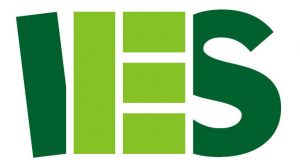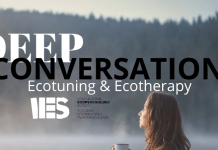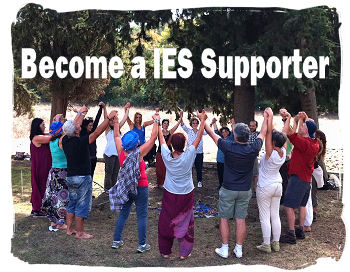Ecopsychology in Organizations is a topic that, although relatively new, is gaining ground in the business world. Some of you already have experience integrating ecopsychological principles in your workplaces, while others are just beginning to explore these possibilities.
This diverse spectrum of experiences and knowledge is precious to learn and grow together in the Deep Conversations, led by Dr. Tina Asherae Fields, IES representative of the United States.
Tina allowed us to explore the various ways in which ecopsychology can be applied in organizations, creating small conversation groups where we asked ourselves about the present and future challenges and paths of our discipline in these spaces that are turning their backs on nature or thinking of it only as a resource to be exploited.
From the creative, diverse, and loving conversations we had, we can extract some points that illuminate our path to continue moving forward:
An Integrated Perspective:
- The connection with nature fosters openness and creativity, allowing people to see more opportunities instead of problems. Natural rhythms, such as the year’s seasons, can offer valuable lessons about the importance of reflection and rest, aspects that many organizations tend to ignore.
- As applied ecopsychologists, we face the challenge of introducing a new perspective into organizations, which can generate resistance. It is crucial to ask ourselves if this resistance is real or comes from ourselves as facilitators, and how we can take care of ourselves to bring this new perspective into organizations.
- Ecopsychology in organizations is a powerful tool to foster sustainability and well-being, both for people and the planet. With each small intervention, we continue to sow the seeds for a more harmonious and connected future with nature.
- To apply ecopsychology in organizations, it is essential to assess to what extent the organization already adopts an ecological and systemic vision. This approach determines the type of interventions possible and the degree of transformation that can be achieved. The effectiveness of these interventions depends on the organizational context, the objectives, and the willingness of the organization to evolve towards regeneration.
- In the health field, nature-based interventions have been researched and applied, restoring biodiversity around healthcare facilities and guiding patients in these natural environments. These activities can range from simple walks in nature to active participation in biodiversity restoration. This can serve as a metaphor for the patients’ personal process, and foster a reciprocal emotional relationship with nature.
- Different programs or activities can be carried out that help organizations continue to advance in harmony with the ecosystem. Some of these programs can be Regenerative Leadership Programs, which amplify the awareness of responsibility and love for the earth, integrating them into the organizational strategy. Eco-literacy helps to apply the patterns of the natural world to organizations. Triple Bloom Innovation Projects, focused on personal growth, community building, and giving back to the earth more than we use from it. Wellness and Integral Health Programs, seeking the harmonization of internal and external nature, incorporating wisdom from the Andean/Amazonian good life.
- It is also crucial to use evidence-based practices and solid frameworks to meet the demands of organizations, combining rationality and intuition, knowledge and experience, and always respecting the reciprocal relationship with nature.
Applying ecopsychology in organizations not only benefits employees but can also transform the organization’s relationship with nature. However, many organizations are not yet ready to fully embrace this vision. Every natural metaphor and every activity that generates awareness of interbeing and connection are important seeds to repair our bond with Gaia and move towards a more sustainable and harmonious future.
We look forward to seeing you at our next Deep Conversation: Ecopsychological Education: September 16, 2024, from 19:00 to 20:30 hr Rome
The article was written with special contributions from Ann Sterckx from IES Belgium, Bianca van Overmeeren from IES Netherlands, Tina Asherae Fields from IES USA and all attendees of the Deep Conversations.
Marian Ríos – IES President – Sept 2023 – Sept 2025










